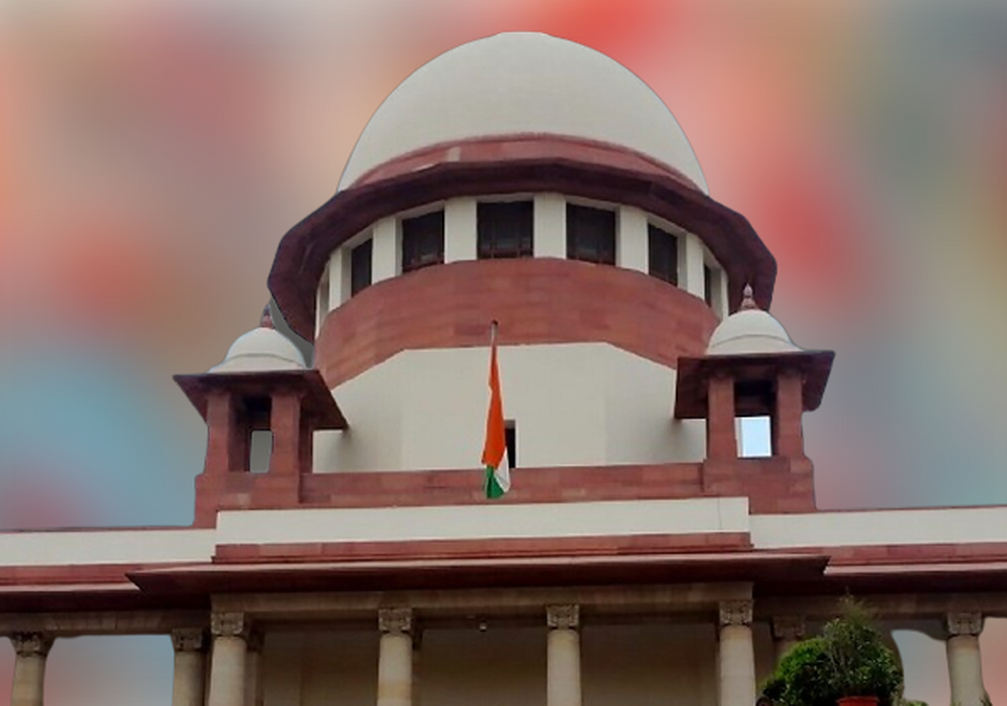Fact that transferee had no notice or that transferee acted bonafide, while entering into transaction, is not relevant for applying Sec.52 of Transfer of Property Act, to such transaction: SC

Read Judgment: G.t. Girish V. Y. Subba Raju (d) By Lrs & Another
Pankaj Bajpai
New Delhi, January 25, 2022: The Supreme Court recently opined that the transfer which is made lis pendens is not a void document and it does create rights as between the parties to the sale. However, the right of the party to the suit who conveys his right by a sale stands extinguished.
A Division Bench of Justice K.M Joseph and Justice Pamidighantam Sri Narasimha observed that that the Doctrine of Notice and Constructive Notice would be inapposite and inapplicable, and therefore, neither the fact that the transferee had no notice nor the fact that the transferee acted bonafide, in entering into the transaction, are relevant for applying Section 52 of the Transfer of Property Act, 1882 to a transaction.
Going by the background of the case, the plaint schedule property which consisted of a site, was allotted to the first defendant (since deceased) in 1979 by the Bangalore Development Authority (BDA). Based on the allotment, a lease-cum-sale agreement was entered into between the BDA and the first defendant. Later, the first defendant entered into the agreement with the plaintiff agreeing to execute the sale deed of the site within three months from the date on which, the plaintiff obtained the sale deed from the BDA. Later, in 1983 and 1984, the plaintiff issued letters to the first defendant, calling upon her to execute the sale deed. The first defendant however issued letter intimating that the plaintiff was in breach, as the agreement itself had lapsed and the advance amount by the plaintiff was forfeited. After issuing Notice, the plaintiff instituted the Suit seeking specific performance. In the meanwhile, the first defendant died.
Later, the plaintiff impleaded the husband of the defendant and a sale deed came to be executed by the BDA in favour of the son of the defendants. Thereafter, the son executed sale deed of the plaint schedule property in favour of the second defendant. The Trial Court did not decree the suit for specific performance but directed return of Rs.50,000/- with 9 percent interest. The High Court however found that the alienation made in favour of the second defendant, was hit by the provisions of Section 52 of the Transfer of Property Act, 1882. Accordingly, observing that when the entire sale consideration was paid by the plaintiff to the first defendant, and that the second defendant was not a bonafide purchaser for value without notice, the Suit was decreed by directing the defendants to jointly convey the plaint schedule property to the plaintiff.
After considering the submissions and evidences, the Top Court found that the first defendant was obliged, in law as the lease agreement, to construct a residential building within two years under Rule 17(6) of the City of Bangalore Improvement Allotment of Site Rules, 1972. But, at the time, the agreement in 1982 was entered into, the first defendant was already in breach.
The direct impact of the agreement is that it compelled the party to abstain from performing its obligation in law apart from breaching the agreement with BDA, and taking the agreement as it is, it necessarily would be in the teeth of the obligation in law of the first respondent to put up the construction, added the Court.
Speaking for the Bench, Justice Joseph observed that there can be no quarrel with the proposition that no interest in property could be conveyed by a mere agreement to sell.
But the question is, whether the agreement to sell in this case is in the teeth of Section 23 of the Contract Act, asked the Bench.
Justice Joseph also highlighted that the Doctrine of Lis Pendens is based on the maxim “pendente lite nihil innovetur”, which means that pending litigation, nothing new should be introduced, and therefore, any disposition of property, as described u/s 52 of the TP Act by a party to the litigation will, in not any way, detract from the finality of the decision rendered by the court.
The Top Court said that the sine qua non for the Doctrine of Lis Pendens to apply is that the transfer is made or the property is otherwise disposed of by a person, who is a party to the litigation.
The person/party, who finally succeeds in the litigation, can ask the court to ignore any transfer or other disposition of property by any party to the proceeding, which is subject to the condition that transfer or other disposition is made during the pendency of the lis, added the Court.
“On a perusal of the plaint, even after the amendment, there is no case set up by the plaintiff that the sale deed executed in favour of the second defendant, is a sham transaction. A sale deed, which is a mere sham and a purchase, which is not bonafide, are two different things. In the case of sham transaction, no title is conveyed to the purchaser. In the case a sale transaction, which is not a sham, the title of the transfer is, indeed, conveyed to the transferee. A purchase may be bonafide or not bonafide. In a sale, which is not a bonafide, words “bonafide sale”, is used in the context of pending Suit and from the point of view of Section 19(1)(b) of the Specific Performance Act. It is difficult to dub it as a sham transaction”, observed the Top Court.
Accordingly, while allowing the appeal, the Apex Court dismissed the Suit for Specific Performance, by directing the appellants to pay a sum of Rs.20,00,000/- in place of the Decree of the Trial Court.
Sign up for our weekly newsletter to stay up to date on our product, events featured blog, special offer and all of the exciting things that take place here at Legitquest.




Add a Comment